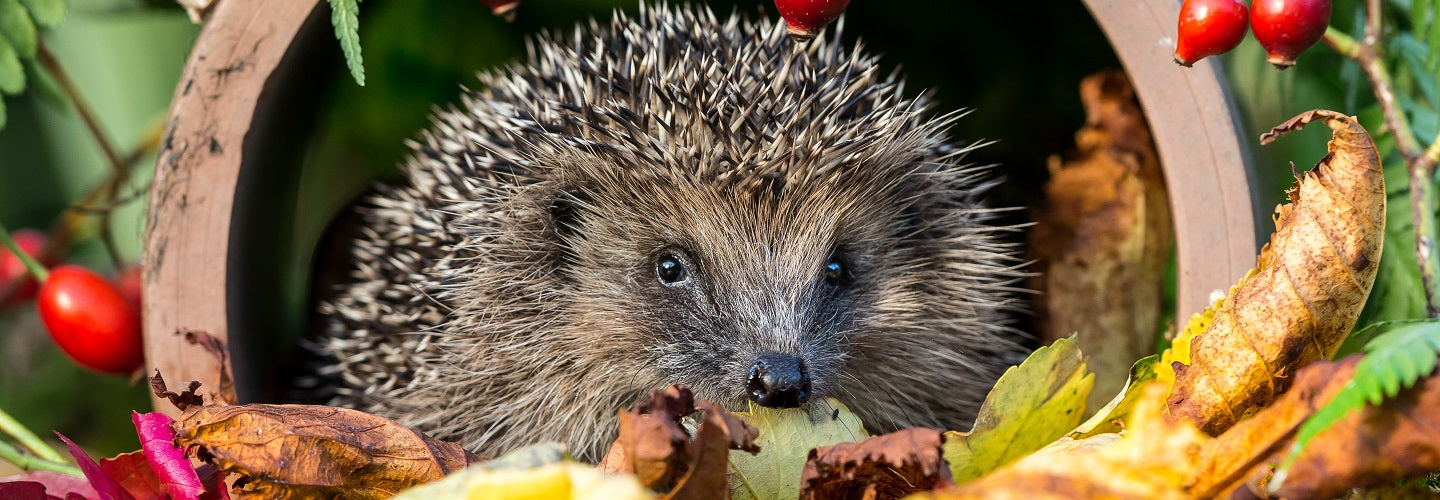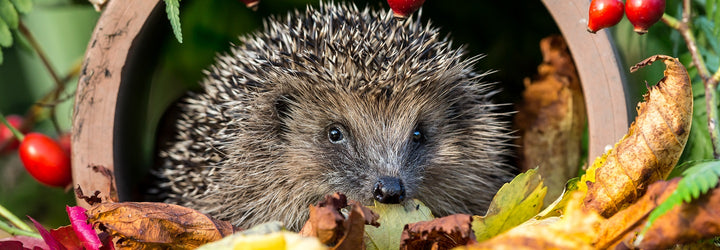

Posted by Emma Oldroyd, on
How to Help Local Wildlife in Your Garden this Winter
It’s that time of year again, temperatures have dropped, and the nights are drawing in. Slowly but surely your local wildlife are running out of food sources and need to find a safe, cosy space ready for hibernation.
At Pets & Friends we know that it’s not just our domestic friends that need a little extra care during winter, so we’ve put together some tips on how to prepare your garden to help critters get through the winter months.

Natural Habitat
Yes, we have the perfect excuse for you to not venture out into the cold with the leaf blower. A naturally messy garden is a haven for creatures like hedgehogs and dormice, who can rummage through the leaves, twigs, and vegetation to find their perfect nesting materials. The insects which are naturally drawn to the foliage are also a fantastic feast for hedgehogs and birds.
Ready-made Homes
If you live in an urban area or don’t have much to offer in ways of foliage and vegetation; buying a ready-made bird or bug box and building hedgehog homes can help welcome the wildlife into your garden for a safe space during winter. Not only will a bird box provide shelter for the winter, but many birds will return to the same box to nest during spring, making them garden friends for life!

Positioning
Positioning is key when introducing bird boxes to your garden, the RSPB recommends that boxes should be positioned between two to four metres high, facing between north and east to help avoid strong sunlight and wet winds. The RSPB also recommends bird boxes have entrance holes of at least 25mm to fit common British birds.
Food and Water
Keeping your new wild friends fed and watered during winter is a huge help; it’s important to remember to keep your bird bath topped up and clean- and for the even colder months- free of ice. Don’t forget your bird feeders either, they’re a great way of ensuring the squirrels don’t eat all the food you offer out.
Bird feeders and baths should always be placed in open spaces, away from predatory areas and cleaned regularly to avoid spreading disease between species.
What’s on the menu?
There are tonnes of feeding options out there, so you can guarantee a wildlife feast when they visit:
- Fat balls and cakes for birds
- Hedgehog food
- Mealworms
- Shop-bought wild bird food
- Nuts (only use peanuts if they are fresh and unsalted, and in high-quality mesh feeders to avoid choking in smaller birds)
- Uncooked and unsalted bacon rind
- Raisins, sultanas, and grapes (keep these up high and out of reach of any dogs)
- Cooked pasta, rice, or potatoes
- Cheese
- Sunflower seeds
Every little helps when it comes to garden wildlife, and if you’re prepping your garden for the winter, don’t forget to share your top tips and pictures with us across social to see how your wildlife haven is thriving.